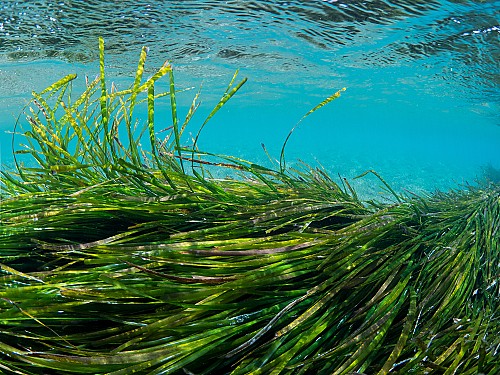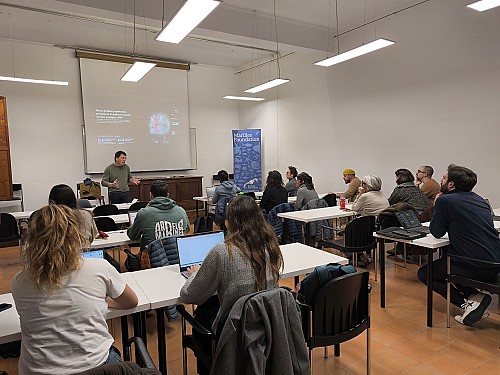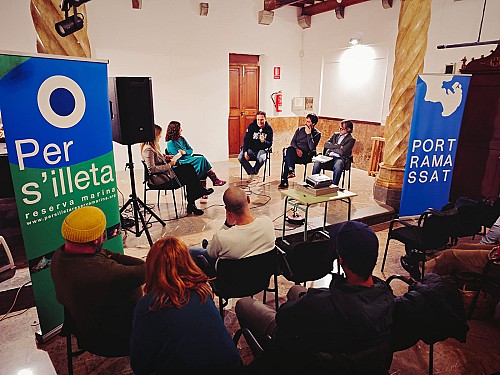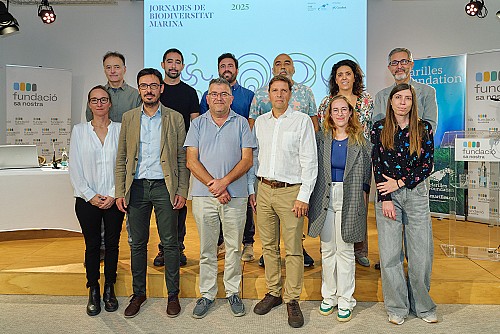Macarena Molina: ‘Although there was a lot of discontent at first, the fishers are now the biggest defenders of the marine reserve’
Published 03.06.2025
Share
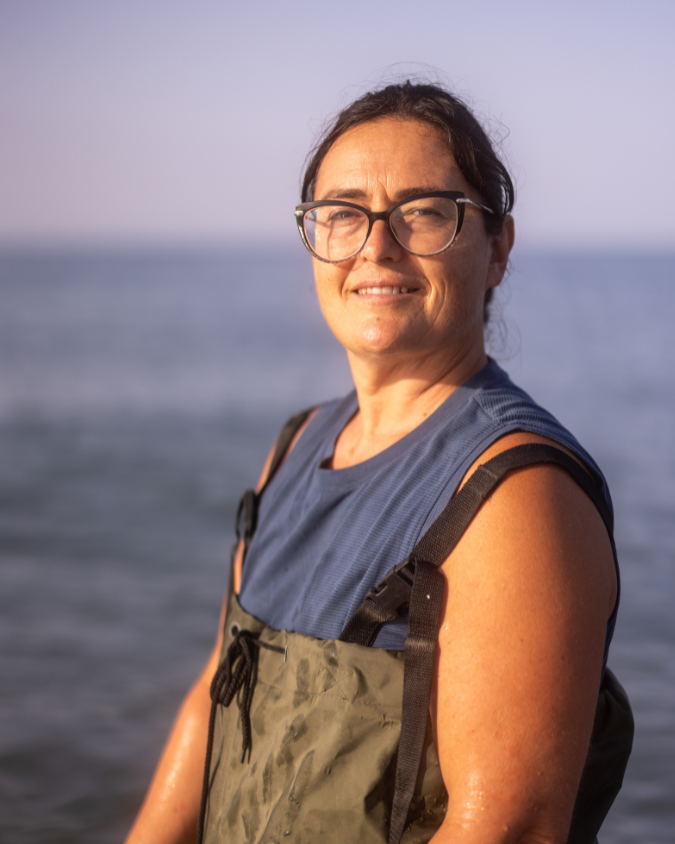
Macarena Molina studied marine sciences and has been also a fisher. With a long career dedicated to ocean conservation, which includes working in the marine reserves of the Balearic Islands, she currently works with Ecologistas en Acción (Ecologists in Action) and PESCARTES, the association of artisanal fishermen of the Cabo de Gata marine reserve. Her aim is to forge links between environmentalism and the fishing sector. Macarena is also part of the MED30 project.
You spent three years at sea as a sailor on a small fishing boat. How has this experience influenced your career as a marine scientist?
It was a radical change. I went from seeing fishers as something alien to the ecosystem to realising that they are another element of it. They are the first to notice changes and to suffer when these changes are negative. They became my most reliable indicator.
What is the relationship between the fishers of Cabo de Gata and the marine reserve? How has it influenced them?
In the case of the Marine Reserve of Fishing Interest (RMIP) of Cabo de Gata, where I have worked the longest, I have noticed a radical change in the fisher's attitude towards the marine protected area (MPA). Initially, there was a lot of discontent, but now they are its biggest defenders. However, this change is not due to the effects of the reserve, as one might expect. The change has come about because, even though the MPA was imposed without any participation on the part of the fishers and its management is a disaster, they understand that it could be a great opportunity to protect their livelihood and the fact that it is poorly managed does not mean that it is not valid.
In daily life, do fishers notice the effects of climate change? How?
Of course. They are the best observers of the sea I know, and they do so at a very local level. No remote sensing system could replace them right now, haha. This makes them notice that the behaviour of species no longer follows the same calendar, that the water temperature changes a lot, that new species appear and others disappear (but not only species of fishing interest), when the size of individuals changes... and many other things.
Does the future of fishing lie in having protected marine areas where fishing is not allowed?
As I said at the beginning, for me fishers are part of the ecosystem and if they are not there, the ecosystem does not work. It would be like thinking that there were no groupers or fanerogams. We must not forget that in addition to fishing, fishers are a source of information on the state of ecosystems. However, I do believe that, with their help, areas of maximum protection should be established to help us understand the ecosystem and achieve the greatest benefit for everyone.
At the conference you addressed in Cartagena on 21 April, you said that sometimes science has to learn to tell things as they are. What did you mean by that?
The scientific community has become accustomed to interacting only internally, and when it emerges from its nursery, it does so only to address the administration, which limits itself to using it at its discretion. However, it has never bothered to ensure that EMP users understand the results of its research, even though they always turn to it for data. I believe that if spaces were created where science and EMP users could exchange information, it would be very beneficial for the conservation goal we are pursuing.
Should the relationship between fishing and science be improved? How?
Well, from my point of view, scientists should be more generous with their knowledge and fishers could be trained to be more useful to science. They would be a good tandem of knowledge: scientific and traditional.
What is traditional ecological knowledge?
Traditional ecological knowledge is the ancestral knowledge of the users of a particular area. It is the memory of what has been, data on what is happening, and a record of changes. It is so local that if we could recover it all, we would have a map of the coastline: how this promenade affected the phanerogams in this area, what happened to the populations when the submarine cable was laid, how a current changed when a breakwater was built kilometres away, etc.
In an interview, you said that the happiest time of your life was when you were a fisher. Why?
Because every day was a challenge. I learned so much (and I'm still learning) about the sea, the boats, the species.
And what's more, it was a luxury to see the day begin or end. I also can't forget to mention that living with fishers changed me personally. Their dedication to their work, their patience in the face of adversity, and their humility before the sea have been the greatest gifts in my life. And, of course, the rebelliousness that drives them to do what needs to be done because they know they are right (something that scares others so much).
Have you always been connected to the sea? Why did you decide to dedicate yourself to marine conservation?
My relationship with the sea began when I was very young, but only as a summer activity. I loved swimming in the sea. The first time I had goggles to see what was beneath the surface, it was a great discovery. That led me to study Marine Sciences. But the most profound change, which linked me to the protection of the oceans forever, was seeing the sea through the eyes of fishers.
TEST FOR SEA LOVERS
A book: The Old Man and the Sea, by Ernest Hemingway.
An image that evokes you of the Balearic Islands: The fishing port of Sóller.
A marine species: Artisanal fishers.
A person or organisation: PESCARTES.
A beach: Cabo de Gata (Almería).
Optimistic, realistic, or pessimistic: Disillusioned pessimist (there is always something that can be done and people who want to do it).

